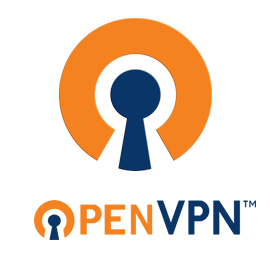OpenVPN protocol was released a whopping 14 years ago all the way back on the 13th of May 2001. It was created by one James Yonan and was published under the GPL or GNU General Public Licence meaning anybody can use, study or modify the contents (hence ‘Open’VPN). OpenVPN uses a custom crafted security protocol that uses SSL/TLS for key exchanges.
OpenVPN protocol is available on pretty much any operating system, Windows, Mac and the various forms of Linux are all pretty much guaranteed to be supported using some additional software as this protocol is not built in. That is the beauty I feel of OpenVPN is due to its open source nature, it allows the community to really come together and improve the initial product, something you can’t really get with something like L2TP for example that is kept a close secret to the companies involved in its creation.
What are the advantages to the OpenVPN protocol?
Well there are many, as I mentioned above the fact it is available on many platforms is a good start, it is even available on the likes of DD-WRT. OpenVPN protocol is also available on mobile platforms such as iOS and Android, though it requires its own app to function. Not only is the support good but the actual encryption and authentication is top notch. OpenVPN allows for peers to authenticate each other with a multitude of methods, things like a pre shared key, certificate or simple username and password are all supported and help add to the flexibility of the protocol. As for encryption OpenVPN makes use of the OpenSSL library with 256-bit Encryption. OpenVPN runs a custom made security protocol that is based on both SSL and TLS.
Are there any disadvantages to the OpenVPN protocol?
There are a few but nothing really privacy destroying. The one problem that many see with OpenVPN is the fact it is not natively supported on anything, it always requires third party software in order to function. To many this is not a problem but sometimes there are situations where installing another piece of software isn’t viable. Another problem for some is the lack of a proper GUI of some sort, all connections are made through certificates that have to be manually edited via something like notepad. All the GUI does is essentially a connection manager, through it you can connect to your premade OpenVPN connection profiles. It exists in your desktop tray and you right click it to give you a drop down list of options.
I feel that OpenVPN is the perfect blend of usability and privacy, the protocol does not destroy your speed and it does so whilst keeping you very secure. If you are looking for a good balance of speed and security then you cannot go wrong with OpenVPN, though it is worth noting that if you are on Windows, SoftEther is a healty alternative with some extra features and a GUI tailored more towards the novice user.
Quicklook Advantages and Disadvantages of OpenVPN Protocol
Advantages
- Platform availability
- Secure and flexible Authentication
- High levels of encryption
- Good speed and security balance
Disadvantages
- No native support
- Limited GUI
- Connections require notepad editing


